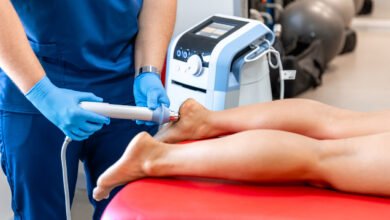Can Medication-Assisted Treatment Cure Alcohol Use Disorder?

While Medication-Assisted Treatment can significantly reduce cravings and help individuals manage their addiction, it’s essential to understand that there is no “cure” for alcohol use disorder. Addiction is a chronic condition, meaning that while it can be managed and treated effectively, it often requires ongoing attention and care.
MAT is a powerful tool in helping individuals achieve and maintain sobriety, but it is not a standalone solution. Successful alcohol use disorder treatment requires a combination of medications, therapy, lifestyle changes, and a strong support system. For many people, long-term recovery involves ongoing participation in counseling and support groups, even after the completion of MAT.
That being said, MAT can drastically improve an individual’s chances of achieving lasting sobriety. By making it easier to manage withdrawal symptoms and reducing the likelihood of relapse, MAT allows individuals to focus on the behavioral and emotional changes they need to make for long-term recovery. In this sense, while it may not be a “cure,” it is a highly effective treatment option for alcohol use disorder.
The Importance of a Personalized Treatment Plan
One of the most critical aspects of alcohol use disorder treatment is the need for a personalized approach. Not every individual will respond to treatment in the same way, and what works for one person may not work for another. Medication-assisted treatment must be tailored to each individual’s unique needs, considering factors such as the severity of the addiction, co-occurring mental health conditions, and any previous treatment attempts.
This is why MAT is often combined with other forms of addiction treatment, including individual counseling, family therapy, and group support. By creating a comprehensive and personalized treatment plan, individuals are more likely to find success in their recovery journey. Healthcare providers work closely with patients to monitor their progress, adjust medications as needed, and provide ongoing support throughout the recovery process.
Read also Alternatives to the Modern Mansion
The Long-Term Benefits of MAT
One of the most significant advantages of Medication-Assisted Treatment is its potential for long-term benefits. By helping individuals manage withdrawal symptoms and cravings, MAT sets the foundation for lasting sobriety. For many, MAT allows them to regain control of their lives and rebuild relationships that may have been damaged by alcohol addiction.
While it’s important to continue with therapy and support, MAT can make the recovery process more manageable. It gives individuals the tools they need to navigate the challenges of addiction treatment and develop healthier habits. By addressing both the physical and mental aspects of addiction, MAT provides a comprehensive solution that can significantly improve quality of life.
Conclusion: MAT as a Path to Recovery
In conclusion, while Medication-Assisted Treatment is not a cure for alcohol use disorder, it is a highly effective tool in the recovery process. By combining medications with behavioral therapies, individuals can manage their addiction more effectively and reduce the risk of relapse. For those struggling with alcohol use disorder, MAT offers a path to recovery that addresses both the physical and psychological aspects of addiction.
Ultimately, the key to overcoming alcohol use disorder lies in a comprehensive treatment plan that includes medication, therapy, and ongoing support. While there is no quick fix for addiction, with the right treatment and commitment, long-term recovery is possible.





